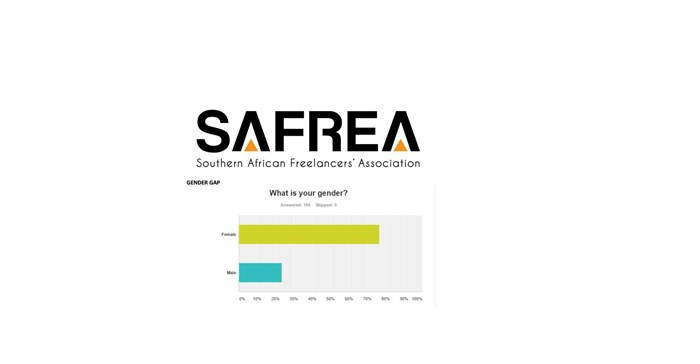
Top stories






More news


Marketing & Media
Ads are coming to AI. Does that really have to be such a bad thing?














Freelancing. For some it’s a nightmare – setting up a home office, sourcing clients, getting them to pay you, figuring out the tax implications – for many others, it’s the ultimate career dream – being your own boss, working whenever and wherever suits you. With this increasing popularity, January 2017 was just the right time for Safrea, the South Africa Freelancers’ Association, to release their first ever freelance media trends and income report.
Until now, the association has made it clear they’re against low-pay – particularly unpaid internships – and aims to regulate the often murky aspects of freelance work, such as lack of contract and whether to negotiate on your set rate or not. Rawden says this report in particular, which gives an idea of the average age, gender, residence, education, working hours and income of South African media freelancers, is a really positive step forward for the SA freelance industry as it gives freelancers and those interested in becoming freelancers an idea of where they fit in the economy as well as what sort of rates they should be paid. And, although results such as the income levels may be worrisome, she says the fact that we now have this data means we can open the dialogue about fair pay practices and work towards change.
Rawden shares further insights specifically related to the Safrea freelance media trends and income report below…
Rawden: SA is following international trends with regard to a growing freelance economy and Safrea works to advocate and support those in the media freelance industry by providing resources, tools, training and networking to strengthen freelance careers.
Safrea's work in advocacy in particular is vital in order to ensure fair practices and standards between freelancers and freelance employees. Too often we see a misunderstanding of the role of the freelancer that affects rates of pay and working conditions. Safrea wants to set down clear definitions and practices that enable fair working relationships and protection for the media freelancer and employers.
Rawden: Fair pay is a real issue within the freelance community, with fees varying widely within the industry and sometimes shamefully low. Safrea wanted to create a guideline that outlined fair rates of pay for freelancers and their employers to use during fee negotiations.
As we entered that research, we realised that SA has a growing freelance community, similar to that seen internationally such as in the US and UK. However, those countries have comprehensive data on their freelance demographics that we didn't have. We wanted to take the first step in building that research and help build a better understanding of who is the SA media freelancer.
Rawden: Layoffs and downsizing in SA media houses have affected the ability for skilled professionals and emerging young talent to get full-time work. However, there is still a need for skilled media workers to produce quality work. Freelance offers an opportunity for some to continue working in the business.
I don't really see a difference between a freelancer and an entrepreneur. Like entrepreneurs, freelancers must see opportunity and work hard to get it by marketing themselves, networking and fighting to win the gig. It takes self-motivation, determination and a lot of hard work to make it in the freelance industry – and that's on top of producing great content once you've been hired!
Rawden: There is a cost benefit for companies to employ freelancers, and tax certainly comes into that. For the most part, freelancers offer highly skilled talent that can come in as needed to help with specific project needs. For example, if an employer suddenly needs a blogger right away, they don't need to jump through the hoops of establishing a new full-time position and salary, they can simply search Safrea's freelance database and hire talent to come in and supply great content as needed.

Rawden: Our research doesn't answer why so many freelancers are women, but I would guess that many women have chosen freelancing because it offers career flexibility not available with full-time work. I think this is where the idea of 'mommy blogger' came about but would be very careful about using such a term as female freelancers are incredibly successful, often putting in as many hours or more than their full-time counterparts.
Rawden: Full-time workers who moonlight as freelancers still have to juggle the constraints of the daily work grind. This means they produce freelance content at night or weekends, or whenever they have time, which may impact on the quality of their work. Freelancers are dedicated media professionals who only take on projects they can do well and within deadlines. Furthermore, when a full-time worker moonlights as a freelancer, they may not be concerned about their rates of pay. They've still got a full-time income, so it may not be worth haggling for a fair rate. This has disastrous consequences for the industry as it normalises lower rates and puts freelancers in a position to accept low pay or lose the job.
It seems we all need to rethink the way we work. The times sure are a-changing. Click here for Safrea’s official release on the study, here to download the report and here for the SA rates trends in particular.
